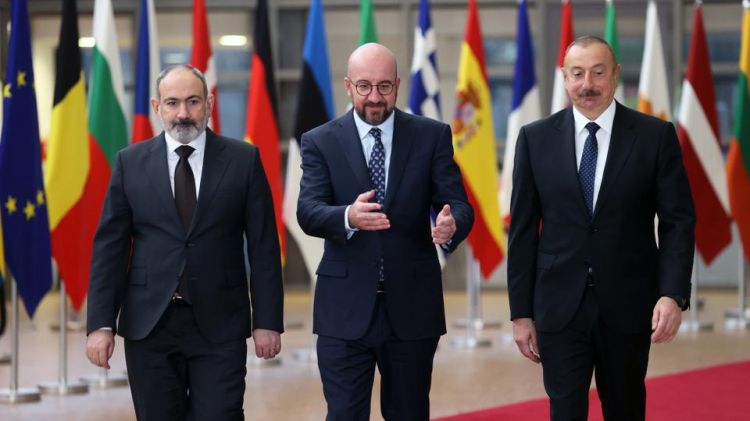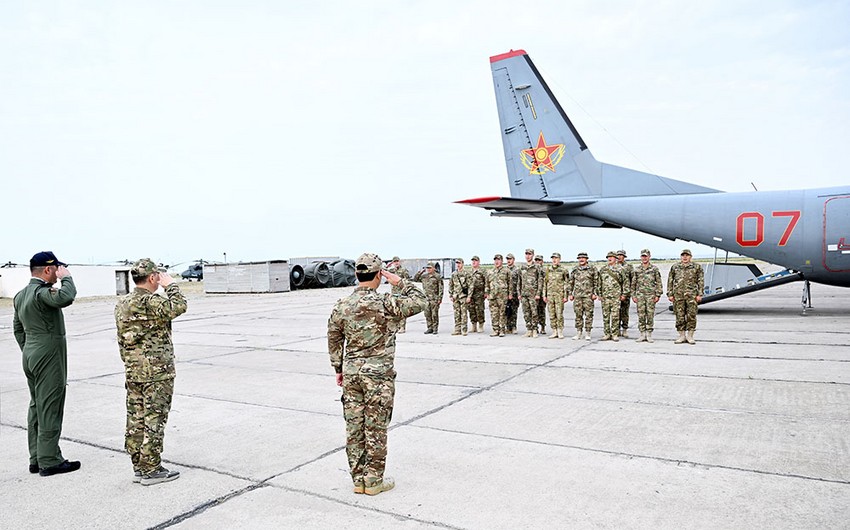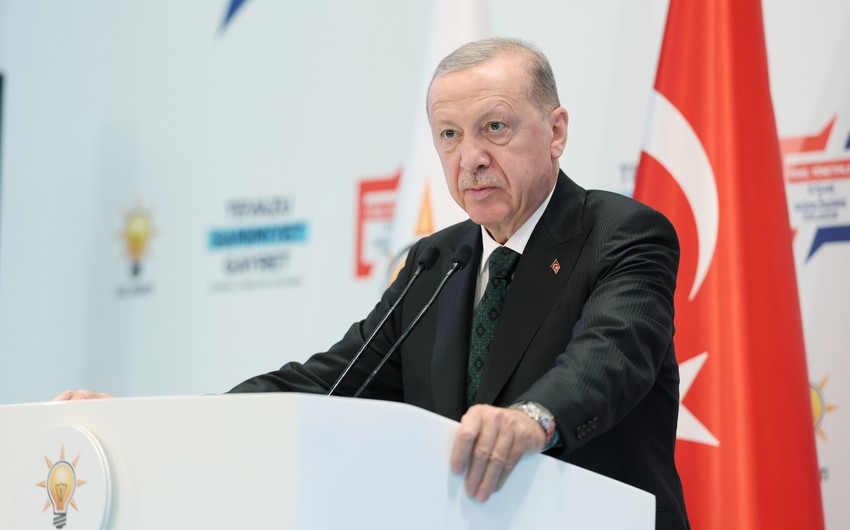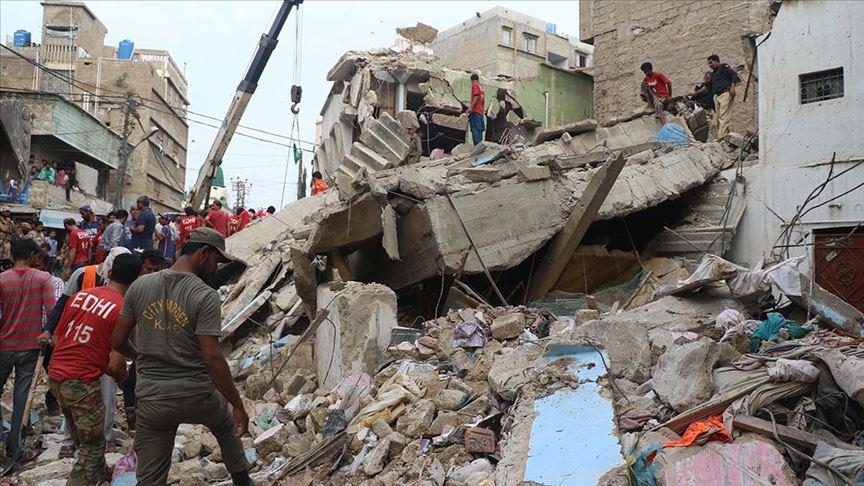“The EU has the potential to become one of the main actors in the peace-building process in the South Caucasus”.
Dr Robert M.Cutler, a Fellow of the Canadian Global Affairs Institute said these words in his interview to Ednews, regarding the Azerbaijan-Armenia peace process.
Besides, he talked about the role of the European Union in rebuilding peace and ensuring security in the South Caucasus, the possibility of signing of the peace treaty, as well as the impacts of war in Ukraine on the geostrategic influence of Russia in the region.
- Dr Robert, you know that the European Union has recently enhanced its efforts to play a significant role in the process of the normalization of relations between Azerbaijan and Armenia. Please tell us why the EU is more interested in the restoration of peace and stability in the South Caucasus? What is the target of the EU following the processes?
The EU has invested many years of activity in the South Caucasus, first through the European Neighbourhood Policy (ENP) and today through the Eastern Partnership, which is a transformation of the ENP. Today the EU it is seeking to show that its "soft power" makes it relevant somewhere in the world. There is also, at some level, a genuine desire to contribute to the humanitarian improvement of the lives of the people through peace-building. About the EU's main aims, these seem to be what the Swiss-American international-relations realist Arnold Wolfers called, many years ago, "milieu goals". This means that the aim is to shape the structure of the international system. In the case of the EU policy toward the South Caucasus, this aim has become more balanced since the Forty-four Day War, in that the EU recognizes the bankruptcy of the OSCE Minsk Group and therefore seeks to play an autonomous role. Its main aim in the region is geostrategic stability and humanitarian development, because it views these conditions as creating security for the EU: there would be no threat of "spillover" of instability from the South Caucasus that might harm EU security. What the EU is unable to do, in pursuit of this goal, is to restrain or counteract the influence of military and strategic "hard power" projected into the South Caucasus by Russia, Iran, or Turkey. Therefore it has limited its main aim to the aforesaid "milieu goals", also because in the EU mind, this would represent, to itself, the successful projection of the EU "garden" (to use the infamous recent metaphor of its foreign policy chief Josep Borrell) into the international "jungle". Although the EU's members may have varying interested in the South Caucasus, there is simply nothing else that the EU, as an international institution can do.
- Do you think that the EU could be determined to become a main actor in the South Caucasus?
Answer: The EU has the potential to become one of the main actors in the peace-building process in the South Caucasus. For this really to happen, of course it is necessary for that process to take off. It cannot resolve any of the fundamental military and strategic questions, although a certain degree of progress has been made for the facilitation of the dialogue, under the auspices of the President of the European Council Charles Michel, between President Aliyev and Prime Minister Pashinyan. And that led to further consultations and political declarations that the recent meeting in Prague to launch the European Political Community. The European Union will never be a "main actor" in the sense of determining how or in what direction the events may develop, but it may play a useful role "in the background" by furnishing certain diplomatic and logistical (e.g., the two-month mission of specialists to the border region) capacities, acting as one international forum among others, to take partial steps in the direction of peace-making.
- According to the Armenian government, a peace agreement with Azerbaijan could be signed by the end of year. Do you see any case that Armenia will finally understand reality and will dare to put a sign on the peace paper?
Anything is possible, but obstacles still remain. Notably, the proposals of Armenia concerning the Zangezur Corridor—which should not even be in the peace treaty because Armenia committed itself to this in the Trilateral Statement of November 2020—do not succeed in fulfilling even its previous obligations. So those proposals are unacceptable to Azerbaijan. There is also a confidential statement by Prime Minister Nicol Pashinyan, reported as a press leak in the Armenian newspapers, that his real goal is to delay the signature of such a treaty for at least two years, in order to give the Armenian military the opportunity to redevelop, restock, and modernize its forces. In order to sign and implement any peace treaty, he must first of all stay in power. Therefore, one never really knows what Pashinyan will do or say, because the domestic politics in his country are so acutely divided and subject to great political forces not only in side but also from outside the country. It is already almost the end of October, which leaves only two months before the end of the year. One should never exclude the power of autonomous human agency in international affairs. Therefore, it remains possible that a peace treaty may be signed before the New Year. However, as the days pass, this becomes less and less likely, particularly as Western and Armenian diplomacy will enter a less active period beginning in the second week of December, as the individuals concerned begin to prepare in their private lives for the Christmas and New Year holidays. Indeed, the need to make translations into different languages and verify them—all while each side must consider the legal ramifications of any terms of agreement and codify them precisely—makes it likely that the most to the expected within the next two months may be some kind of "agreement in principle". And of course, all of this should have to be coordinated with the process of diplomatic normalization the state-to-state relations, not only between Armenia and Azerbaijan, but of course also between Armenia and Turkey.
- Some experts regard that Russia's stalemate in the prolonged bloody war in Ukraine has already had negative impacts on its geostrategic position in the South Caucasus. As an expert, what do you think about this?
This question has three answers: one about Armenia, one about Georgia, and one about Azerbaijan. As for Armenia, it is extremely unlikely that Yerevan would ask Russia to evacuate its troops from Armenian territory. Indeed, the third Russian military base is under construction near the Tovuz region, under the guise of a border post. Armed Russian personnel, under the FSB, of course provide the security for most of Armenia's international border. As for Georgia, despite the weakening of Russian prestige and power-projection capabilities in the region, there at present no sign or indication of exit of Russian military forces either from Abkhazia or from the Tskinvali region. As for Azerbaijan, it is not excluded that Russian forces are obliged to leave the territory where they are now stationed after the five-year term of their deployment has elapsed. As is known, the agreement of both Baku and Yerevan is formally necessary for that term to be renewed or extended. In general about the South Caucasus, therefore, it is unlikely that Russia will be compelled to "get out" of the region. What has changed, however, is, of course, that today Russia is obliged to "share" influence in the region with not only Turkey but also Iran.
- In the last border clashes on 12-13 September Russia’s failure to support Armenia makes Yerevan to determine its fate whether it should leave Russian orbit and make attempts to join the Western alliance. What do you think, the West, especially France and the United States could be a new strategic ally of Armenia?
It is difficult for Armenia to leave the Russian orbit for simple material reasons. To begin with, Russian state entities own, among other things, Armenia's national railroad company, banking system, and gas distribution system. Since the re-invigoration of Russia's war of aggression against Ukraine in February, many Russian citizens have fled to Armenia, but not because they oppose that war. Armenia has welcomed them, and they represent a further social support for Russian influence in Armenia. To be sure, the radical Armenian Diaspora in France and the United States has a certain influence on the foreign policies of those countries. It may even be possible to say that France, or at least its President Emmanuel Macron, would like to regard Armenia as a "strategic ally" with the power-projection capabilities of France to not allowed to have really a strategic approach to the South Caucasus, other than a rhetorical one. As for the United States, despite confusion in the State Department—which to be honest is no longer a major player in the formulation of U.S. foreign policy—a certain realism appears to be creeping into the American strategic direction towards the region, which regards Azerbaijan as a gate opening into the greater Caspian Sea region and Central Asia. Also Armenia's entire international alliance system is anti-Western. Therefore, despite certain fears that are expressed in some segments of the Russian media commentary, it would require really unexpected and unforeseeable developments for Armenia to become objectively a strategic ally of West, no matter what may be the subjective ideas of opinion-leaders in Moscow, Paris, Washington, or elsewhere.
Yunis Abdullayev










